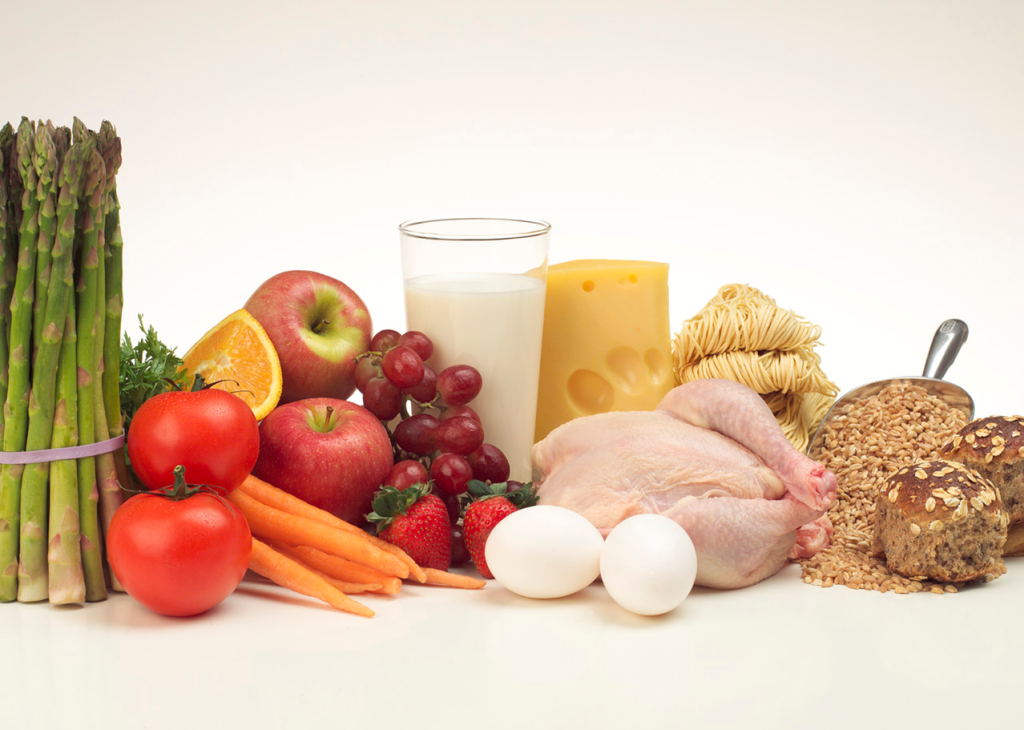Some thoughts and discussions from me.
Diet. Add it to the list of 4-letter words for some for whom it conjures up notions of restriction and obsession. Tell someone you’re on a diet – or to go on a diet, and you’ll get 10 people who tell you, “it’s not a diet! It’s a lifestyle!”
Here’s the thing, though: if you’re actively trying to either lose weight, gain weight, or change your physique, you likely have a plan. Purposefully being in a deficit or a surplus is (should be) temporary, and thinking of it as a lifestyle can actually be damaging.
[Tweet “It’s Not a Lifestyle, It’s a Diet via @TrainerPaige #fitfluential”]
Having a Plan and Knowing When to Change it
What happens when a person wants to lose weight and just starts making nutrition overhauls all willy nilly, like say, eliminating food groups, going low carb, or even just slashing portion sizes without knowing what they’re changing, it can get hairy. Because they think of it as a “lifestyle,” they don’t stop to notice exactly what changes are being made. They could be eating way too few calories, way too many, or simply just not getting in sufficient micronutrients to support a healthy metabolism.
Now, I’m not saying we should be meticulously counting calories – not at all, actually – but when I create a meal plan for my clients who have fat loss goals, I don’t call it a lifestyle, but a plan. We start from what’s currently going on, make a few pointed and purposeful changes, and continue to make changes until the goal/maintenance is reached. It’s a plan that’s temporary, dynamic, and changing.
Think about it: when you’re losing fat, you are, in one way or another, eating in a deficit. If your goal is fat loss, that’s great! Your diet is working. However, once you reach your goal, and likely several check points along the way, this plan will be altered. When you’re where you want to be, you won’t want to be in that deficit anymore.
This is where calling a diet a lifestyle can become negligent. If you carried on that “lifestyle” you’d be continuing to eat at that deficit (or a surplus, if you’re gaining weight) without meaning to. Sure, the metabolism changes along with your weight and energy intake, but it’s important to know what you’re doing and how much of it in order to achieve that goal, in order to transition when it’s time to switch gears. Then it’s time to make it a lifestyle, and that’s called maintenance.
Maintenance
In my experience, it’s very important to know where you’re at when you decide you want to accomplish a goal. Whether it’s losing body fat, gaining muscle, increasing energy, or what have you, knowing your starting point is crucial in order to know what changes need to be made to reach your goals.
Now, I don’t have all of my clients counting macronutrients or calories (though there are some who prefer to count grams,) I do have every client keep track – at least in a general sense – of what they’re doing. Otherwise, how will we know what to change once a) progress stalls or b) goal is reached?
This is why, when many individuals make it to their “goal weight,” they get stuck, and either continue eating in a deficit, thusly falling into disordered and unhealthy patterns, or simply revert to what they were doing before, and un-do all of their progress.
When it Becomes a Lifestyle
Now, if you take a person who’s diet consists primarily of fast food, soda, and sugar, clearly, making a couple lifestyle changes will lead to success. Still, it’s important to know where you started from and what changes you made. And of course, there are aspects that you’ll carry over into your lifestyle that you’ve learned along the way. Hopefully you’ll continue to eat balanced meals, get in enough protein, drink plenty of water, and eat your vegetables. However, the diet itself is not a lifestyle.
So, you make lifestyle changes, but your diet is not a lifestyle. A consistent workout routine is a lifestyle. Prioritizing foods that support your health is a lifestyle. Getting 7-9 hours of sleep is a lifestyle.
I’d love to hear from you! How do you differentiate being on a diet vs. it being a lifestyle?




Girl, your posts have been resonating with me SO much lately! As someone who’s struggled with both overexercise and eating issues, it’s so refreshing to see someone take on health and fitness in a no-BS, healthy way. Love what you’re doing, keep it up! 🙂
So true!! I have never thought about it this way but I agree that a diet where you want to loose or gain weight should not become a lifestyle. It is not sustainable to be always in a loosing and gaining cycle. There are all sorts of thoughts know rambling in my head as I start to digest this post. Such a great insight! 😉
Elsie @ Sharing Healthiness recently posted…Toppings are the Best Part
I can relate to a lot of this post. Being flexible and really figuring out what’s working and not working has been crucial for me.
Fiona @ Get Fit Fiona recently posted…5 Reasons to try Yoga
I think I get your point regarding this post. Some good thoughts, I even read it twice to make sure I got what you were saying.
I guess what I’m wondering is, I have a friend who loses the same 30lbs, and then gains it back probably 3-4 times a year, every single year. No joke. It has to be terrible for her body, but that’s how she feels in control I guess. Anyways, I was wondering if you could do a post on your thoughts about taking things from a diet to maintenance/lifestyle mode once goals are reached. I have talked to her about it before, but she seems to think that she just can’t make good dietary and fitness decisions even most of the time, so when things happen in her life, like vacations, or busy times she chalks those up to a let loose time and gain the weight, and then just crazy diets later to take it off again. She is vocal about being a chronic lifetime dieter. Anyways, just wondering your thoughts on that. Because this post is good, but for someone like her who knows full well she’s in diet mode, and that it’s not a lifestyle, there’s no words on how to get there. Does that make sense?
Yes – great post idea! Maintenance can be such a tough area in regards to weight.